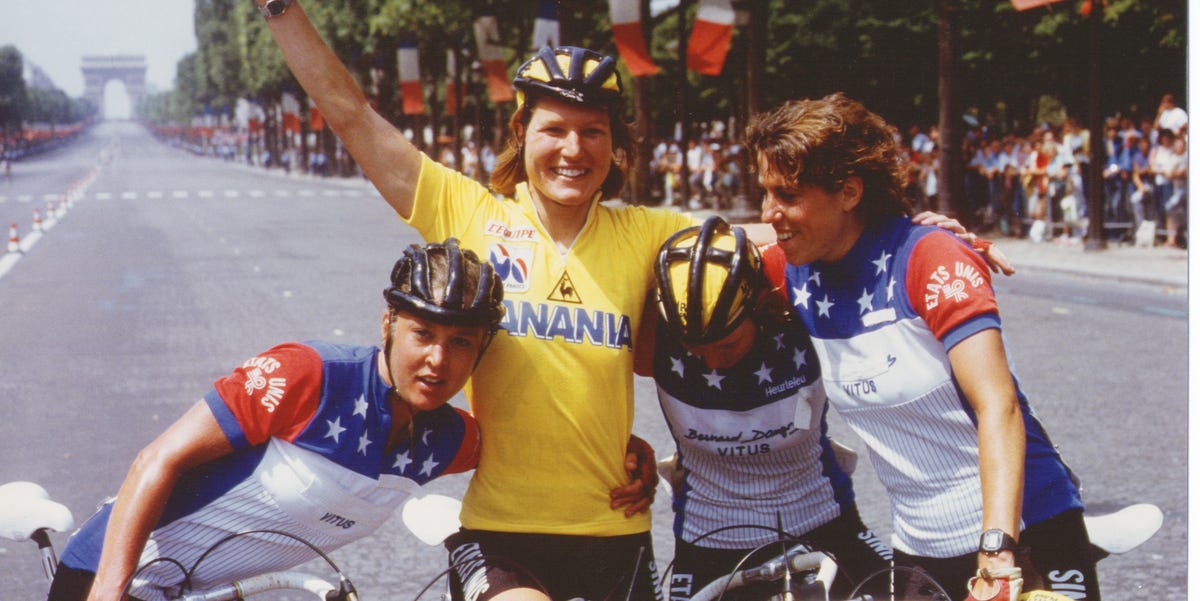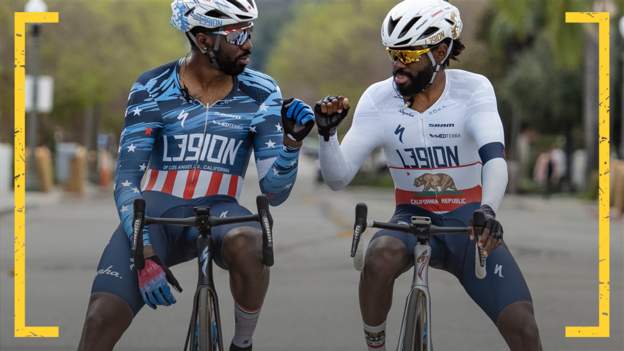
How things are spinning in the world of pro cycling
Cycling has for most of its history largely been a young White guy’s sport, dominated heavily by the likes of now-disgraced Lance Armstrong.
Worse, it was rough for women to gain any headway, and that was for White women, much less People of Color.
There has long been agitation to create another Female Tour de France. One White woman, Marianne Martin, won the whole thing back in 1984.

You’d think that after her win, it would be smooth sailing from there.
Hardly. From the article:
Although women’s professional cycling has come a long way in the past three decades as well, it has not yet achieved equality with the men’s side. For one, women no longer have the opportunity to race on the iconic Tour de France stage — the Tour de France Feminin disbanded in 1989, partially due to lack of funding and dwindling interest, just five years after Martin won the inaugural event.
But there is more recent progress. Colorado, my state for the prvious fifty years, is famously woman-friendly in a lot of ways. To that,
Just as Martin is pushing for individual progress, there are signs that women’s pro cycling is evolving, too: There has been a push over the past few years to improve funding and increase opportunities for women’s pro racing. This year, the Colorado Classic, for instance, has become a women’s-only race, making it the only women’s standalone pro road race in the Western hemisphere. According to its site, the race “is advancing women’s pro cycling with harder, longer routes; unprecedented financial support; and daily live TV streaming coverage that puts women’s racing on a global stage.”

Due to Covid the race was cancelled. But it will be back. Sponsorship is provided by VF Corporation, which is taking strong stances on diversity and gender equality across many sports worldwide. Industries are taking notice, getting involved and putting real money and support where it matters.
I couldn’t find out how many Black women were going to be in that race. But here is one woman who means to make that wave happen:

McGowan is the first to break that barrier. As with all things, she won’t be the only one, if she her way and her say. To see what she’s up to and who is supporting her on her website:

But what’s more important are all the Black women she’s leading into the sport. While they may be drafting her right now, McGowan is determined to ensure that they eventually pass her. You can find these up — and-comers on her website. To her credit she doesn’t mean to be the Only Black Female Pro Cyclist for long.
In other important cycling news, it’s not a good idea to put a Blackface emoji out and show your support for Trump if you’re a White Teen-aged pro cyclist. That bit of stupidity might well have ended the career for budding pro Quinn Simmons.
American neo-pro Quinn Simmons benched by team over ‘incendiary’ tweet
From the article:
Simmons expressed support for current US President Donald Trump, which in itself was not what landed him in hot water. Rather it was his use of a dark brown emoji, a sort of Internet blackface that, at the very least, shows a lack of racial awareness from a white rider.
Simmons’ response set off a firestorm on social media, further dragging a brand, Trek, that has already been in hot water with some over its decision to continue selling bikes to American police.
Right now it’s not a good business model to be doing business with the police, as Trek is doing. But at least, after some pressure, they grew a couple. Simmons is a racist. If he races. that means Trek condones his views. Trek’s already treading hot water and this caused a boil over.
That these guys are young is no excuse. That kind of black eye is costly. And it wasn't the only time.
Also from the article:
It was not Simmons’ first racially-charged dispute. Shortly after protests over the murders of Black men and women erupted across the United States this summer, American pro Cory Williams, who is Black, posted a series of Instagram posts outlining his excellent junior and espoir results and subsequent lack of selection to US national development programs. The color of his skin, he has said, had played a role in that lack of selection.
Simmons responded to Williams via direct message, saying he was simply not fast enough. Williams then used a screenshot to share Simmons’ message with his 85,000 Instagram followers.
This is Cory Williams:

Cycling has pushed back incredibly hard to keep women out, to keep POC out, and they have finally bonked. At some point, you cannot stop progress. You can impede it but it’s coming. While Trek was slow to do the right thing, sports organizations are beginning to discover the their race records- and and their records ON race- can be costly if they don’t step up their games.
Major firms like VF and others are putting real funds behind what is clearly the future of all sports: diversity and gender mixes. Those who don’t get behind what’s coming are likely to be left behind.






Comments powered by Talkyard.